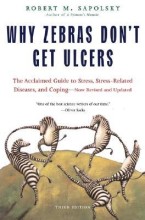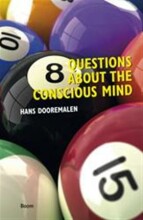Summary: Psychology Of Advertising
- This + 400k other summaries
- A unique study and practice tool
- Never study anything twice again
- Get the grades you hope for
- 100% sure, 100% understanding
Read the summary and the most important questions on Psychology of Advertising
-
1 Week 1
-
1.1.2 Part II Processing
This is a preview. There are 16 more flashcards available for chapter 1.1.2
Show more cards here -
What four types of preattentive analyses exist?
Perceptual /conceptual processing Matching activation Fluency Mere exposure
-
What is perceptual and conceptual processing?
Part ofPreattentive analysis Perceptual analysis;physical features (colors ,contours )Conceptual analysis;product use ,usage situation - Can have effects even if product looks perceptually different from ad
-
2 Week 2
-
2.1.1 Part 1: Memory and all
This is a preview. There are 2 more flashcards available for chapter 2.1.1
Show more cards here -
What are three things memory can 'do'?
- Encoding: Getting info into the system
- Storage: Involves information retention (LT&ST)
- Retrieval: Finds info from memory
- Encoding: Getting info into the system
-
What is the model of Atkinson and Shiffrin (1968)?
Sensory input --> sensory memory (info not transferred is lost)
--> Short-term memory (information not transferred is lost, rehearsal necessary)
--> LTM -
What is the nice thing about Sperling's study (1960)?
Tone after you see random letters improves memory through memory trace -
What are arguments for not having seperate memory systems?
The role ofattention /processing If processed well --> memory increases
Baddely and Hitch -
What is the model of Baddely and Hitch (1974)?
Working memoryCentral Executive
Phonological Loop Language Visuospatial Sketchpad Visual semantics Episodic Buffer Long-term episodic memory
-
How do you assess memory?
- Explicit (conscious awareness)
- Recall
- Recognition
- Implicit (unconscious awareness)
- Word stem completion (COM.....)
- Word fragment identification (C.M.U.ER)
- Lexical decision task (BOY< BRK< BLF< BAT is it a word?)
- Explicit (conscious awareness)
-
What are the perks of implicit measures of memory assessment?
- No social desirability
- Very stable --> roots in LT socialization experiences
-
What can affect implicit and explicit memory differently (Jacoby, 1983)?
- Effects of prior words with or without a context (context such as hot)
- Followed by an implicit perception task in which you have to say wheter 'cold' was a word
- Followed by an explicit recognition task
- With context the recognition increases but perception is worse
- Effects of prior words with or without a context (context such as hot)
- Higher grades + faster learning
- Never study anything twice
- 100% sure, 100% understanding































